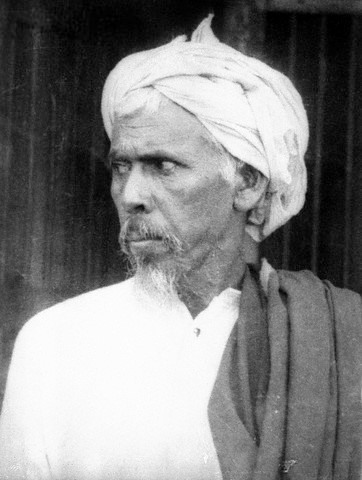
I was fortunate to lay my hands on a recent publication titled, “Imagined Nationalism” edited by Syed Asraf and Abdul Bari, C, which is a collection of newspaper reports on the Malabar Rebellion of 1921-22, appearing in the Bombay Chronicle. If the contents of the book, which are primary sources, were available to me during my thesis and at the time of producing the many documentaries on the Mappila Uprising, I would have been able to build a much stronger case. Nevertheless, I will attempt to reproduce some of the reports in my blog in the coming days.
This post is on the illustrious Sheikh Ali Musaliyar, a scholar who inspired the masses in Malabar to rise up against the British. He was arrested by the British police on 31 August 1921, and later sentenced to death in Coimbatore, India. Here is one news item about him after his arrest.
Dateline: Monday, October 1921, Case Against Ali Musaliyar, (Associated Press, Calicut, Oct.15)
…Ali Musaliyar admitted that he was a member of the Khilafat Committee at Tirurangadi. He had done nothing against government. His enemies had sent anonymous reports. Being asked about the meaning of Khilafat he said it was supreme authority of religion over other people. (p.187)

Leave A Comment